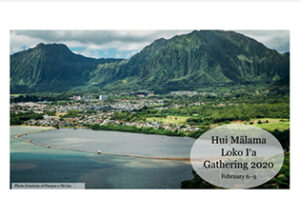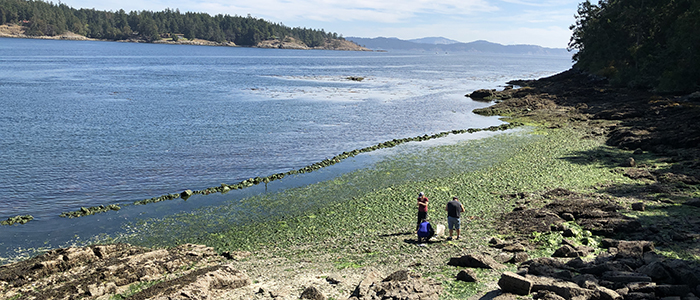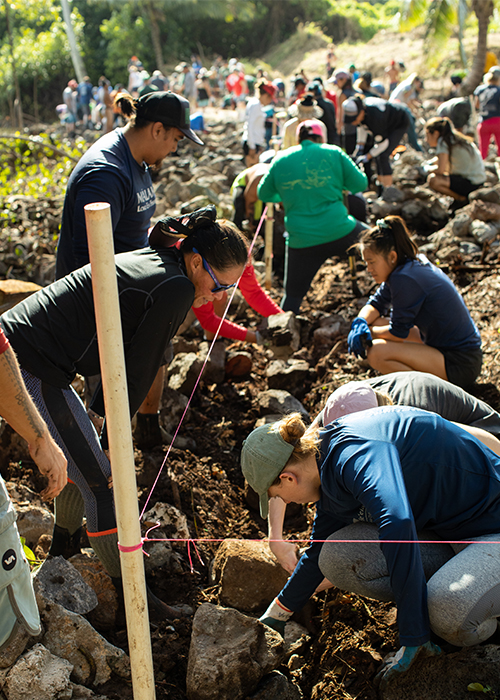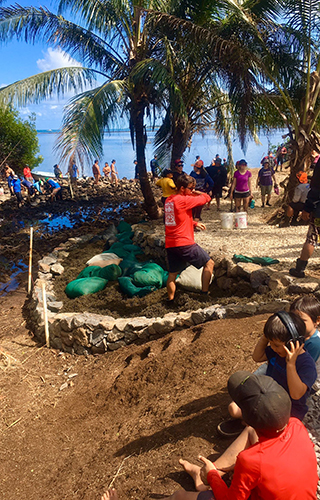Community of Practice
The Indigenous Aquaculture Collaborative Network is a “community of practice,” which means that what unites us is a set of shared practices and common goals rather than specific geography or identity. Our network supports and advances the practices of tending, stewarding, producing, and managing sustainable coastal food systems based on Native and Indigenous knowledges, relationships, and traditions. We call these systems Indigenous Aquaculture, which are cultural ecosystems such as fishponds and clam gardens that have been cultivated and adapted by First Stewards over hundreds and even thousands of years.
Our collaborative hub is inclusive and consists of an international network of Tribes, First Nations, community organizations, Native environmental educators and students, coastal ecosystem scholars, and other individuals. Unique Indigenous Aquaculture systems are place-based and the network of collaborators in our hub is located in coastal places and homelands across the Pacific.
 Additional information about our respective marine stewardship and community food sovereignty programs can be found through our Photovoice project that KUA assembled for our 2020 Hui Malama Loko I’a Gathering. In this project, participating groups share self-empowered visions and descriptions of their community-based, cultural-ecological work with photos and maps of their homelands.
Additional information about our respective marine stewardship and community food sovereignty programs can be found through our Photovoice project that KUA assembled for our 2020 Hui Malama Loko I’a Gathering. In this project, participating groups share self-empowered visions and descriptions of their community-based, cultural-ecological work with photos and maps of their homelands.

Learn about our collaborating organizations and entities in the following links.
- Washington Sea Grant
- Hawaiʻi Sea Grant
- Alaska Sea Grant
- Kuaʻāina Ulu ʻAuamo (KUA)
- Northwest Indian College Native Environmental Science Program
- Central Council Tlingit & Haida Indian Tribes of Alaska
- Jamestown S’Klallam Tribe
- Lummi Nation
- Makah Tribe
- Sitka Tribe of Alaska
- Squaxin Island Tribe
- Suquamish Tribe
- Swinomish Indian Tribal Community
- Puget Sound Restoration Fund
- Parks Canada Gulf Islands National Park Reserve, Clam Garden Restoration Project
- Coastal Marine Ecology and Conservation Lab (Dr. Anne Salomon, Simon Fraser University)
- Coastal Communities and Ecology Lab (Dr. Marco Hatch, Western Washington University)
- Southeast Alaska Tribal Ocean Research (SEATOR)


Photo credit: Rosa Laucci
